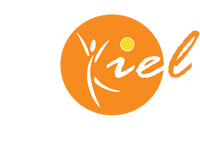- The Institute offers its services to decision-makers who need just a little push, a bit more information or motivation to take (the right) decisions that will lead to the improvement of livelihoods, and that will make a difference in the livelihoods of their communities. These decision-makers are found across the society. The Institute’s activities will be restricted to the needs of developing countries and, to a limited extent, countries with economies in transition. The targeted clients are:
- (a) Potential trainers whose specific needs will be identified through questionnaires:
- University staff and resource persons from centers of excellence
- Regional organizations working directly or indirectly on biodiversity conservation, sustainable development including poverty eradication, and related issues;
- (b) Government representatives: Through their national reports and decisions taken in the framework of regional and global agreements, governments identify their capacity building needs and nominate their respective representatives to attend capacity building workshops/training programmes. These nominees can be national focal points for the regional or global agreements or people designated by these focal points. Direct interactions with them provide an idea of capacity building needs, which will have to be confirmed through questionnaires.
- (c) Indigenous and local communities: In the context of the CBD, indigenous and local communities identify their needs through the Ad Hoc Open Ended Working Group on Article 8j. Their needs are also made known through other forums in particular the UN Permanent Forum on Indigenous Issues, an advisory body to the UN Economic and Social Council. Specific capacity needs are identified through direct interactions on the occasion of meetings. They also need to be confirmed through questionnaires.
- (d) Private sector: This sector consists of various national and international business organizations/enterprises whose capacity needs can be identified in their annual reports. These needs are diverse and will have to be addressed on a case by case basis. However, because this economy sector usually has the most significant impact on livelihood, its needs are worth considering with some level of priority.
- (e) Educators and those who, at UNESCO and UNICEF, are in charge of reviewing and revising primary and secondary school and university curricula;
- (f) Other influential groups:
- Religious leaders have a significant impact on the thinking and behaviors of people. Equipped with the right tools and information, they can effectively help in taking the decisions that will improve livelihoods.
- Journalists have the skills and means to communicate and shape opinions. They can play a key role in the communication and motivation chain for livelihoods improvement when they are made aware and provided with the right information.
- (iii) Parliamentarians are elected representatives of the people. They participate in the making of government policies, plans and budgets. They are the main players in deciding on legislation. As such, their decisions can have direct impacts on livelihoods.

© Copyright 2013 · All Rights Reserved · Institute for Enhanced Livelihoods

